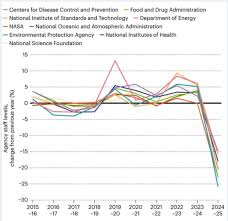A conservative proposal for a carbon tax
A promising proposal from conservative leaders, but important questions remain
An impressive lineup of senior Republican leaders has embraced a carbon tax as an approach to address climate change. The proposal is to trade away the Obama Administration Clean Power Plan and tort liability against fossil fuel companies for a $40/ton carbon tax that would increase over time. All revenues from the tax would be rebated per capita to individuals, producing a per-person payment of about $2000/year, and increasing over time.
Right now, given the current chaotic political scene in DC, the proposal is probably dead in the water for now. But I think it is significant, because it is the first serious attempt by Republican institutional leaders to push for action on climate change. In that light, it is a very positive development for the future.
Is this a deal that we should take? I’m cautiously optimistic. As this report from the group that sponsored the proposal indicates, a $40/ton carbon tax would have a major impact on emissions in the U.S., lowering them by about 28% by 2025 from 2005 levels, meeting the U.S.’s Paris commitments. The carbon tax is about three to four times higher than the current price for cap-and-trade credits in California, and similarly higher than EU emissions trading credits. Here are the issues that I think still would need to be worked out with the proposal – which I hope the leaders working on this are thinking hard about.
- What exactly are the federal regulations that would be superseded by the carbon tax? The EPA’s Clean Air Act regulations on old and new fossil fuel power plants clearly would go, and that makes sense because those are the facilities that would be most easily covered by a carbon tax. But what about building, automobile, and appliance efficiency standards? There is evidence that upstream carbon taxes may have limited effects on consumer behavior in (for instance) using heat and electricity in a residence, meaning that efficiency standards for buildings and appliances are a necessary complement to a carbon tax.
- What role would states have to regulate on top of the federal standards under this proposal? States have taken a real leadership role in the U.S. in pushing climate policy. Moreover, many the state policies have involved regulations on the production of electricity (e.g., renewable portfolio standards mandating minimum amounts of renewable energy in the state electricity grid) or utility rate setting policies that encourage adoption of renewable energy (e.g., net metering policies that pay for the electricity produced by distributed generation on homes and businesses). In general, U.S. environmental law has allowed states to set higher standards than the federal government if states wish to do so – there doesn’t seem any reason to not follow that approach here. Unlike (for example) automobiles, where a uniform national standard might be important to ensure a national market, electricity generation and retail sale has long been primarily regulated at the state level in the United States, and that has worked so far for climate policy. Moreover, states would be very reluctant to give up their primary jurisdiction over electricity generation and retail sales.
- What role would federal electricity and energy regulation play under the new policy? The Federal Energy Regulatory Commission (FERC) generally regulates interstate commerce in electricity, including interstate distribution and transmission. FERC has played a significant role in facilitating the development of deregulated transmission markets, a development that also has generally facilitated the growth of renewable energy. Moreover, if we are to dramatically increase the amount of renewable energy in the U.S. that will require more construction of interstate transmission lines for a continental scale grid. Would the proposal eliminate FERC’s power to encourage these kinds of projects?
- Is the carbon tax really high enough to drive the kind of investments we need to shift to a decarbonized economy – both from an economic perspective but also from a political perspective? Research that our group at Berkeley and George Washington University has done indicates that regulatory mechanisms that are focused on narrow industry sectors may be more effective in driving the kind of investments that can build new energy fields. Moreover, those investments may be crucial to build long-term political support for clean energy. That last point is really important because there may be attempts to undo the carbon tax down the road – and political support will be essential to protect it. Driving substantial investments by industry, and creating new industries that are based on a clean energy economy, will be a key component of political support for the carbon tax on an ongoing basis. This report from the group advancing the carbon tax proposal argues that the dividend payments will help lock-in the carbon tax. I think that’s plausible, but the more lock-in, the better.
- What do we do about non-fossil fuel greenhouse gas emissions? Lots of greenhouse gas emissions come from sources besides fossil fuel combustion – from deforestation, from agriculture, from livestock. About one-quarter of global emissions come from these sources. But it is difficult to apply carbon taxes to these emissions. For fossil fuel emissions, you can tax the fossil fuels as they are extracted from the ground. But for the wide range of other emissions, how do you determine what taxes to levy on a rancher because of the combined greenhouse gas emissions from their livestock (which produce methane from their waste) and from how they manage their rangelands (which can affect the ability of soil to store carbon)? From what I can see of the proposal, these issues are currently dodged.
Overall, I am encouraged by the proposal and think it is worth pursuing, but these are central questions that will have to be addressed.
Reader Comments
3 Replies to “A conservative proposal for a carbon tax”
Comments are closed.







Check out a similar proposal from Citizens’ Climate Lobby at http://www.citizensclimatelobby.org. George Shulltz is also involved in that organization. Their proposal would have far greater emission reductions and would not roll back any regulations
It is worth noting that there are a range of GHG sequestration mechanisms that are independent of fuel use, notably OTEC and kelp forest restoration (something we “otter” be doing for its own sake).
These could be literally game changers so any carbon tax scheme needs to have a component that funds these efforts.
I am not sure how this plan would do that, even though these alternatives might be very cosy effective.
Eric Biber asked;
“….Is the carbon tax really high enough to drive the kind of investments we need to shift to a decarbonized economy….”
Carbon taxes have no effect on global climate and do not mitigate climate change. Climate mitigation is a big hoax that is slowly being relegated to the trash bin of history. There is no such thing as a decarbonized economy nor should there be. Humanity depends on fossil fuels to thrive and replenish life on Earth. Hurrah!